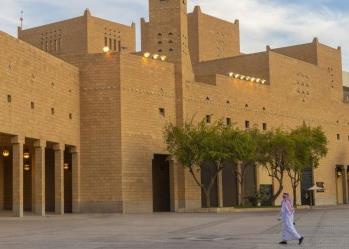
“The law in Egypt is excellent for business,” says a grey-suited Arab businessman attempting to flatter Egypt’s Investment Minister Mahmoud Mohieldin. “Is it?” asks Mohieldin, before the businessman can move on from his flattery to pose a question.
The minister’s interjection draws laughter from the audience of Western and Middle Eastern investors and would-be investors gathered to hear more about the resurgent Egyptian economy. Mohieldin’s acknowledgment that at least one element of the Egyptian system is still in need of reform is the closest he gets to criticism of his country. The minister is speaking at an investor conference in London.
To observers on the ground in Egypt, the domestic problems facing the economy could not be clearer. Within four days of Mohieldin’s speech, two Egyptians are killed in riots in Cairo, provoked by long queues and shortages at bakeries selling government-subsidised bread.
Egypt’s economy may be expanding quickly, with growth likely to stay at more than 7 per cent in 2008 for the second year running, but poor Egyptians who cannot afford to buy bread at market prices are being left behind.
Attracting investment
More than anyone else, Mohieldin is the public face of Egypt’s economic reform programme. When the World Bank named Egypt as the fastest-reforming economy in the world in October 2007, Mohieldin’s beaming face looked out from the bank’s website. He became Egypt’s first investment minister in 2004, with a brief to open the country to foreign direct investment (FDI).
By this measure, his tenure has been a resounding success. Net FDI in Egypt was $3.9bn in 2003-04. Over the 12 months to the end of June 2007, Egypt’s most recent financial year, foreign companies invested $11bn in
the country.
Mohieldin has a hectic schedule and there is barely a lull in conversation as he talks at the sidelines of the conference. He speaks quickly and concisely, punctuating his responses with “Next?” when he feels it is time to move on.
While Mohieldin accepts there is still work to do, he is keen to emphasise that the business environment to attract FDI has been put in place since he took on the job, and investor confidence has been growing as a result.
“This [investor confidence] is not one of the things we are concerned with,” he says. “We are becoming even more open than some of the OECD [Organisation for Economic Co-operation & Development] countries. You cannot see anyone hinting at a protectionist measure.”
But while the World Bank may rank Egypt as the fastest-liberalising economy in the world, it still classifies it as a ‘difficult’ country for businesses. Its latest Doing Business report ranks Egypt 126 out of 178 economies, up from 152 in 2006.
Worryingly for Mohieldin and the rest of Egypt’s pro-business cabinet, other Middle East economies are far ahead in the rankings. Lebanon is ranked 85 despite the long-running political crisis that has prevented its government from introducing any reforms to attract investors since November 2006. Jordan, which competes with Egypt in sectors such as IT and tourism, is ranked 80. Saudi Arabia is the highest-ranked Middle East state, at 23.
Skills gap
While the business environment in Egypt is friendly to foreign investors, Mohieldin accepts there is clearly much left to do.
“The concerns for businesses with Egypt are things that have to be addressed in the following areas: the skills gap, access to funding and finance, access to land, and improving matters related to the registration of firms,” he says.
The skills gap may well be Egypt’s biggest problem. Despite all the FDI, most jobs are still low-skilled and poorly paid. Egypt has the lowest per capita gross domestic product (GDP) in the region, at just $1,700 in 2007. The economic reform programme that started in 2004 might have improved the wealth of upper-class Egyptians, but the majority of people have yet to benefit from the changes.
Some economists have predicted that wealth will trickle down to poorer Egyptians as the wealthy increase their spending, but Mohieldin has no time for this theory. “All of the tricks and theories are weasel words coming from politicians,” he says. “Nothing trickles down automatically. We can grow for 10 years at 10 per cent a year without doing anything [for poor Egyptians]. Unless we improve education, we will not achieve anything.”
The country has a well-educated class of senior managers, mostly because wealthy families send their children to schools in the UK and the US. “There is no problem at the very top of our institutions,” says Mohieldin. “There is no problem to recruit those people. The problem is in the middle of the job layers. We have been adopting a system of educating the masses for almost 60 years now. By the law of large numbers, we have got some educated Egyptians. We are changing the system now. We need to have lots of reform in education.”
Changing climate
The country will hold a forum on the future of its education system in May, with strong backing from Prime Minister Ahmed Nazif. Although Mohieldin declined to say what reforms are likely to be introduced, he points out that teachers will be held to higher standards in the future. “This could upset some people in the short term, but it will be beneficial in the long term,” he says. “We need better measurements of performance.”
Although the record FDI in Egypt is creating plenty of jobs, many ordinary Egyptians are failing to benefit because they lack the skills to do the work on offer. Mohieldin says he knows how to find work for these people, to prevent them being left even further behind.
The government is about to start a multi-billion-dollar programme of investment in the country’s infrastructure through public-private partnership deals. Under these schemes, the private sector will finance the construction of schools, hospitals and roads, which the government will then pay rent to use.
These infrastructure projects will require thousands of relatively low-skilled construction workers and could help cut the unemployment rate, which, despite all the foreign investment in the country, has remained stubbornly close to 10 per cent in recent years.
Mohieldin says the other problems for the business sector will be addressed through the government’s biannual survey of investor confidence, an initiative started by Mohieldin, which is known as the Investment Climate Assessment. The next assessment will take place this year. The government uses the survey of business gripes with the country’s regulations to prioritise areas for reform.
One problem that is already recognised is the cumbersome system of buying and developing land and property, which Mohieldin says is exacerbated by the success of the economy. It takes an average of 193 days to register a property through the existing legal system, according to the World Bank.
Economic courts have been proposed by the government, which will be used to speed up the resolution of property disputes. They will also deal with other commercial cases that, at the moment, take an average of six years to go through the court system. Egypt’s parliament is expected to approve the creation of these courts within weeks.
There is another major problem for the Egyptian economy. The government has one of the largest budget deficits in the region, at 6.9 per cent of GDP, according to ratings agency Standard & Poor’s. Government spending exceeds revenues from tax and other income because of the generous subsidies it offers on fuel and food. With commodities prices at record levels on international markets, these are likely to become even more expensive for the government in the coming year.
However, Cairo is well aware that any attempt to scrap either set of subsidies would almost certainly lead to more riots, and possibly even more serious social unrest.
“The 2008 budget is still under preparation says Mohieldin. “Definitely subsidies are going to be higher given the increases in food prices and our emphasis on social programmes within the state’s budget.”
Investors will become worried if the public finances deteriorate further, but Mohieldin promises the government’s finances will become less stretched. “We are not going to allow the budget deficit to go above its current level,” he says. “It will reach 4 per cent by the end of this decade. There are improvements to the revenues from taxation. There is an increased number of taxpayers and tax [greater] returns.”
The increase in the price of most major foodstuffs is a major threat to Egypt’s ability to balance its budget. The week after MEED met Mohieldin, the price of Thai rice - a benchmark for rice prices - climbed by 30 per cent in one day as major producers across Southeast Asia slapped export bans on the grain. Mohieldin, however, blames high prices on US support for biofuels rather than Asian governments.
“Inflationary pressures are of concern for Egypt,” he says. “I would like to announce that our problems are not because of drought and not because of our friends in India and China.
“The use of food products for energy is becoming an issue of concern for us. It is not really efficient. It is not really abiding by the rules we should all be following.”
Egypt is probably more exposed to higher food prices than any other country in the world because of its reliance on imports. The country is the largest importer of wheat, with forecast imports for the 12 months to the end of June of 7.5 million tonnes, according to the UN’s Food & Agriculture Organisation.
Recession fears
However, some elements are outside the government’s control. All the progress made on foreign investment and legal reforms could come to an end if major economies such as the US go into recession, as some economists now predict.
Mohieldin appears to recognise that Egypt needs to make the most of its opportunities while it can. “We benefited from a very benign emerging markets environment,” he says. “While we are still enjoying the benefits of that, we need to tell the Egyptian story more. Investors are after different stories on their own merits, and that is what Egypt has to offer.”
Career History
2004: Investment Minister
1999: Senior adviser to the Foreign Trade Minister
1997: Senior economic adviser to the Economy & Foreign Trade minister
Professor in Financial Economics at Cairo University
Member of the general secretariat of the National Democratic party
Member of the policies secretariat of the National Democratic party
Co-chairman of the economic committee of the National Democratic party
You might also like...

Contractors win Oman Etihad Rail packages
23 April 2024

Saudi market returns to growth
23 April 2024

Middle East contract awards: March 2024
23 April 2024

Swiss developer appoints Helvetia residences contractor
23 April 2024
A MEED Subscription...
Subscribe or upgrade your current MEED.com package to support your strategic planning with the MENA region’s best source of business information. Proceed to our online shop below to find out more about the features in each package.








